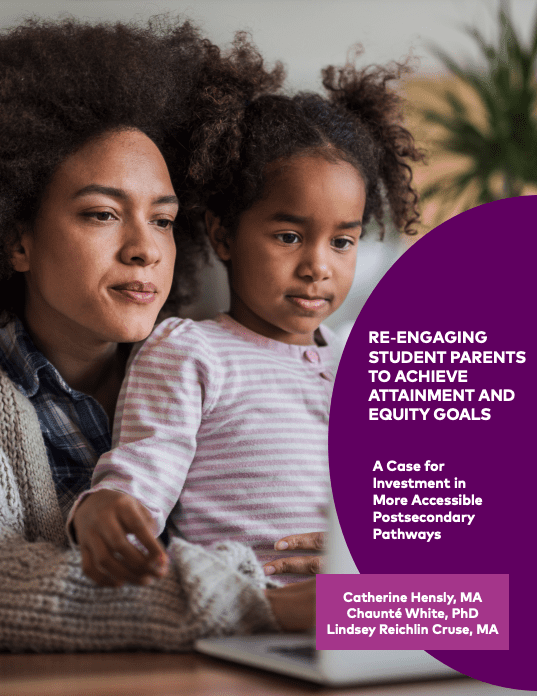United States 
Re-Engaging Student Parents to Achieve Attainment and Equity Goals

United States 

In recent years, the goal of 60 percent of adults holding a postsecondary degree has been set as a key benchmark for the United States to build a skilled workforce and remain economically competitive.
Engaging adults with some college credit but no degree is critical to reaching this goal. Efforts to increase adult degree attainment, however, have largely ignored the role of parenthood in adults’ ability to reengage with and complete college. This report builds on past IWPR research exploring the experiences and support needs of student parents, including those who have taken prolonged enrollment breaks, and the policy and practice reforms needed to improve their ability to thrive in and graduate from college. Using data from the American Community Survey, the report sheds light on gaps in educational attainment rates among parents by gender, marital status, and race and ethnicity. It then projects future attainment rates to highlight the integral role parents play in reaching a 60-percent attainment target nationally. The report also demonstrates how gaps in degree attainment by race and ethnicity may persist in the absence of more targeted support for adult learners who are parents of children under 18. This research was generously supported by Imaginable Futures.
